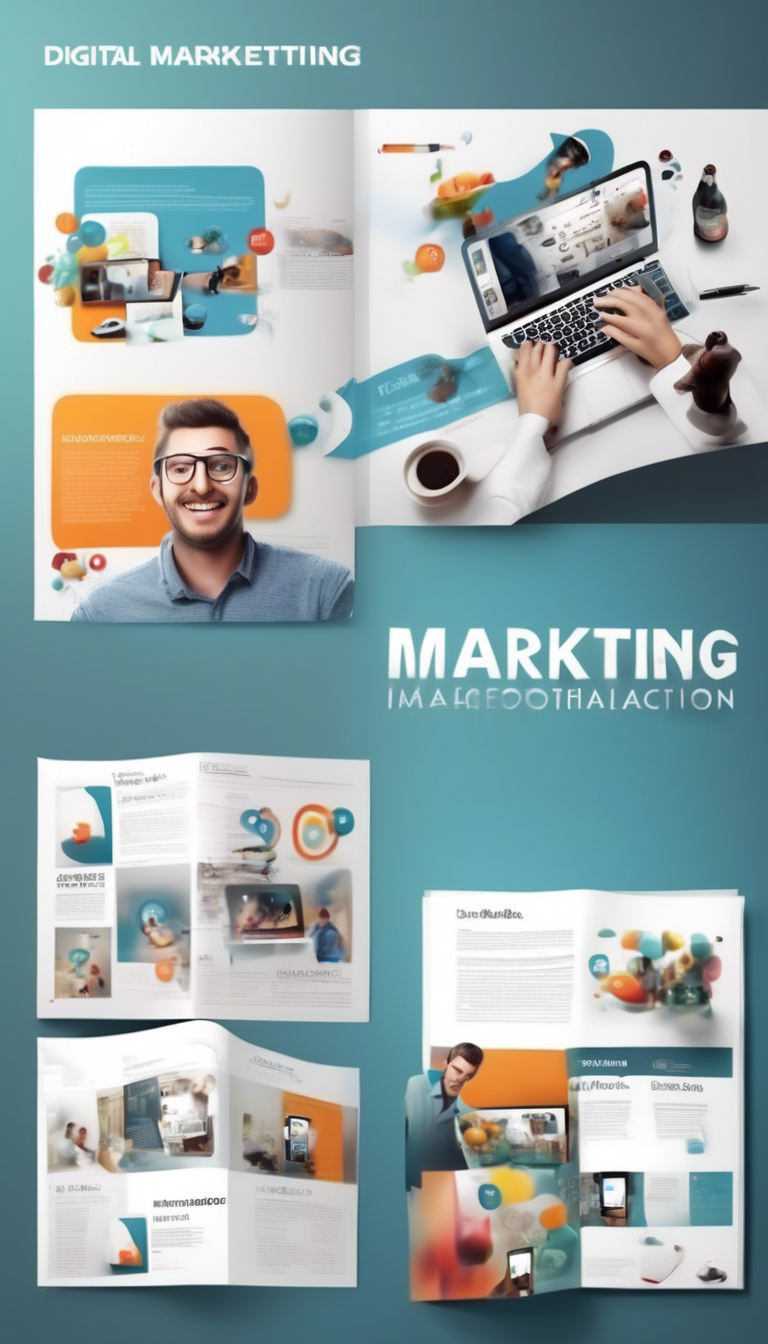Exploring the Core Components of Digital Marketing
In today’s fast-paced digital world, understanding the core components of digital marketing is essential for success. With more consumers turning to their screens for information, this realm of marketing has become a critical part of any business strategy. Digital marketing encapsulates a variety of tactics designed to engage customers online and drive conversions. Let’s explore these essential components that make up the foundation of effective digital marketing.
Search Engine Optimization (SEO)
Search Engine Optimization is like the oxygen of digital marketing. If you want your website and content to be found, excellent SEO practices are key. This involves optimizing your website to rank higher on search engine results pages (SERPs) for specific keywords. Key activities include:
- Keyword Research: Identifying terms your audience is searching for.
- On-Page SEO: Optimizing title tags, meta descriptions, and content.
- Off-Page SEO: Building backlinks and enhancing site authority.
- Technical SEO: Ensuring your site is user-friendly and fast-loading.
By focusing on these areas, you can improve visibility and bring organic traffic to your site.
Content Marketing
Content is king in the digital marketing universe. High-quality content draws customers in and keeps them engaged. This involves producing various forms of content, including:
- Blog Posts: Informative articles that address your audience’s pain points.
- Videos: Engaging visual content that has high shareability.
- Infographics: Visually appealing data representations that simplify complex information.
- Podcasts: Audio content that reaches audiences who prefer listening over reading.
Each of these content types serves to build trust and authority, making it easier for potential customers to connect with your brand.
Leverage AI and Automation In Your Business
Social Media Marketing
In an era where social media rules, effective engagement through platforms like Facebook, Instagram, Twitter, and LinkedIn is crucial. Social media marketing involves:
- Building Brand Awareness: Creating a presence where users can discover your brand.
- Engaging Audiences: Encouraging interactions through posts and discussions.
- Running Paid Ads: Targeted advertising can drive traffic and conversions.
- Monitoring Feedback: Listening and responding to audience reactions and concerns.
Leveraging social media not only promotes your brand, but it also creates a loyal community around it.
Email Marketing
Email marketing remains one of the most effective digital marketing strategies. It allows you to communicate directly with your audience and drive conversions. Effective email marketing includes:
- Newsletter Campaigns: Regular updates that keep subscribers informed and engaged.
- Promotional Emails: Offers and discounts sent directly to your audience’s inbox.
- Automated Campaigns: Targeted messages that trigger based on user behavior.
Crafting personalized and relevant emails can significantly enhance customer retention and boost sales.
Leverage AI and Automation In Your Business
Pay-Per-Click (PPC) Advertising
PPC advertising is a cost-effective way to drive quick traffic to your website. This strategy involves running ads on platforms like Google AdWords and social media networks. Key elements include:
- Keyword Bidding: Choosing the right keywords to bid on, balancing cost and competition.
- Ad Creation: Writing compelling ads that attract clicks and conversions.
- Analytics: Tracking and measuring ad performance for ongoing optimization.
With wise management, PPC can provide an instant return on investment and increase visibility almost overnight.
Analytics and Data Tracking
Understanding the performance of your digital marketing efforts is essential. That’s where analytics and data tracking come into play. Tools like Google Analytics provide insights into:
- Website Traffic: Analyzing who visits your site and how they found you.
- User Behavior: Understanding what visitors do once they arrive on your site.
- Conversion Rates: Measuring how well you convert visitors into customers.
By regularly reviewing these metrics, you can identify what works and what needs improvement, allowing you to optimize your strategy continuously.
Leverage AI and Automation In Your Business
Each of these components plays a vital role in crafting a comprehensive digital marketing strategy. By integrating SEO, content marketing, social media, email marketing, PPC, and analytics, businesses can effectively engage their audiences and achieve their goals in the digital realm.
The Role of Social Media in Modern Marketing Strategies
In today’s fast-paced digital world, social media plays a crucial role in shaping how businesses connect with their audience. As people spend more time on platforms like Facebook, Instagram, Twitter, and LinkedIn, businesses are tapping into these channels to strengthen their marketing strategies. Let’s explore how social media influences modern marketing and why it’s essential for success.
The Power of Brand Awareness
One significant benefit of using social media in marketing is the ability to increase brand awareness. When you share engaging content, potential customers are more likely to discover your brand. This can lead to:
- Wider Reach: With billions of users worldwide, social media allows you to reach a vast audience.
- Cost-Effective Advertising: Running targeted ads on platforms can be done on a budget, making it accessible for businesses of all sizes.
- Content Virality: High-quality content can be shared easily, increasing the chances of going viral.
Enhancing Customer Engagement
Social media also provides an avenue for businesses to interact with their customers directly. Engaging with your audience builds trust and fosters loyalty. Here’s how:
- Real-Time Interaction: You can respond to comments and messages immediately, creating a personal connection.
- User-Generated Content: Encourage your audience to share their experiences with your brand. This type of content can increase engagement and authenticity.
- Feedback and Insights: Utilize polls and surveys to gather feedback that can shape your products and services based on customer needs.
Bluing Content to Drive Traffic
Driving traffic to your website is fundamental for conversions, and social media can be an effective tool. By sharing blog posts, videos, and other content, you can guide users back to your site. Consider these strategies:
Leverage AI and Automation In Your Business
- High-Quality Visuals: Posts with eye-catching images or videos are more likely to attract clicks and shares.
- Sharing Valuable Content: Create informative content that addresses your audience’s pain points. This encourages shares and drives more visitors to your website.
- Using Hashtags: Hashtags can increase the visibility of your posts and connect you to broader conversations.
Targeting the Right Audience
One of the unique advantages of social media marketing is the ability to target specific demographics. You can optimize your marketing efforts by ensuring your content reaches the right people. Here are ways to enhance targeting:
- Demographic Targeting: Social media platforms allow you to target users based on age, gender, location, and interests.
- Custom Audiences: You can create audiences from your customer database, allowing you to retarget previous customers.
- Lookalike Audiences: Leverage your existing customer data to find similar users who may be interested in your products or services.
Analyzing Performance
Tracking the success of your social media marketing efforts is vital for continuous improvement. Most platforms provide analytics tools that help you assess your performance. Here’s what to focus on:
- Engagement Rates: Monitor likes, comments, and shares to gauge how your audience interacts with your content.
- Click-Through Rates: Analyze how many users click on links compared to those who view your posts.
- Conversion Rates: Measure how many leads and sales you generate from your social media campaigns.
Integrating social media into modern marketing strategies is not just an option but a necessity. By leveraging its advantages—from boosting brand awareness to enhancing customer engagement and analyzing performance—you can create a robust marketing presence. Remember to keep your content relevant and audience-focused. As you adjust your strategies based on insights, you’ll not only enhance your outreach but also build long-term relationships with your customers.
As you navigate this landscape, remain adaptable to trends and audience preferences. The key to successful social media marketing lies in your willingness to engage authentically and deliver value consistently.
Conclusion
Understanding the core components of digital marketing is essential for anyone looking to thrive in today’s fast-paced online landscape. By grasping key elements such as search engine optimization (SEO), content creation, email marketing, and analytics, you can effectively tailor your efforts to meet the evolving demands of your audience. Each component plays a vital part in building a strong online presence, ensuring that your brand not only reaches but also resonates with potential customers.
Leverage AI and Automation In Your Business
Social media has emerged as a powerhouse in modern marketing strategies. Platforms like Facebook, Instagram, and Twitter allow businesses to engage directly with their target audience, offering real-time feedback and fostering a sense of community. The ability to share content quickly and widely has transformed how brands communicate, making social media a strategic tool for enhancing visibility and driving sales. Through targeted campaigns, engaging posts, and interactive content, businesses can connect personally with consumers, cultivating loyalty and brand advocacy.
Embracing these digital marketing facets empowers you to craft a comprehensive strategy that leverages the full spectrum of online opportunities. As technology continues to evolve, staying informed about industry trends and adapting your approach will be crucial. By investing the time to understand both the foundational components and the dynamic role of social media, you are setting the stage for long-lasting success in the digital realm. With the right blend of creativity, data-driven decisions, and customer engagement, your digital marketing efforts can flourish, translating into growth and recognition in your industry.


